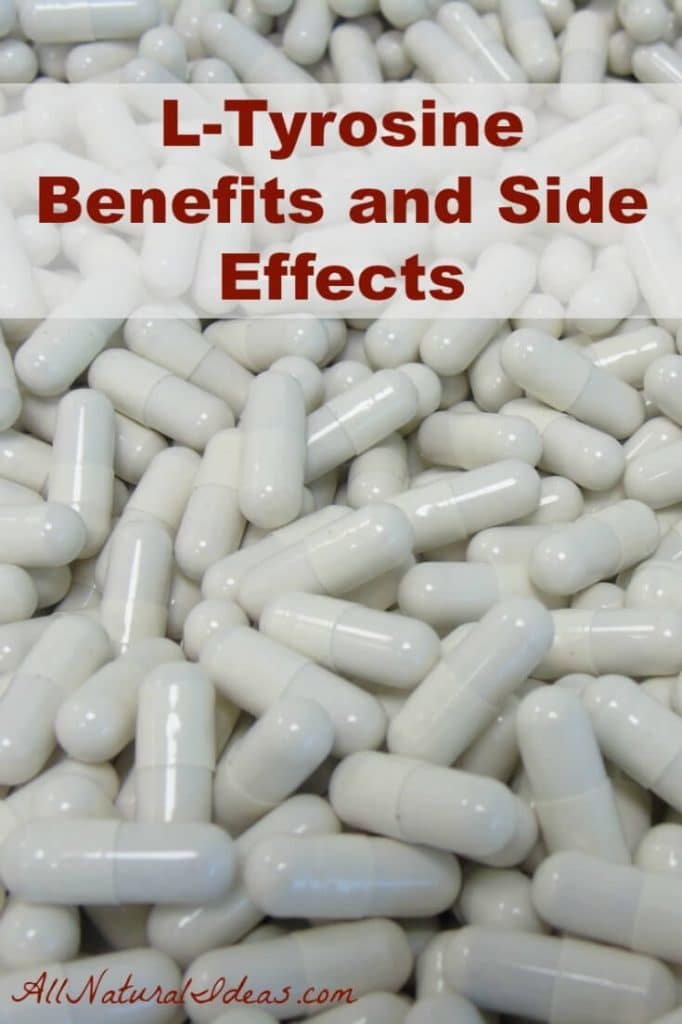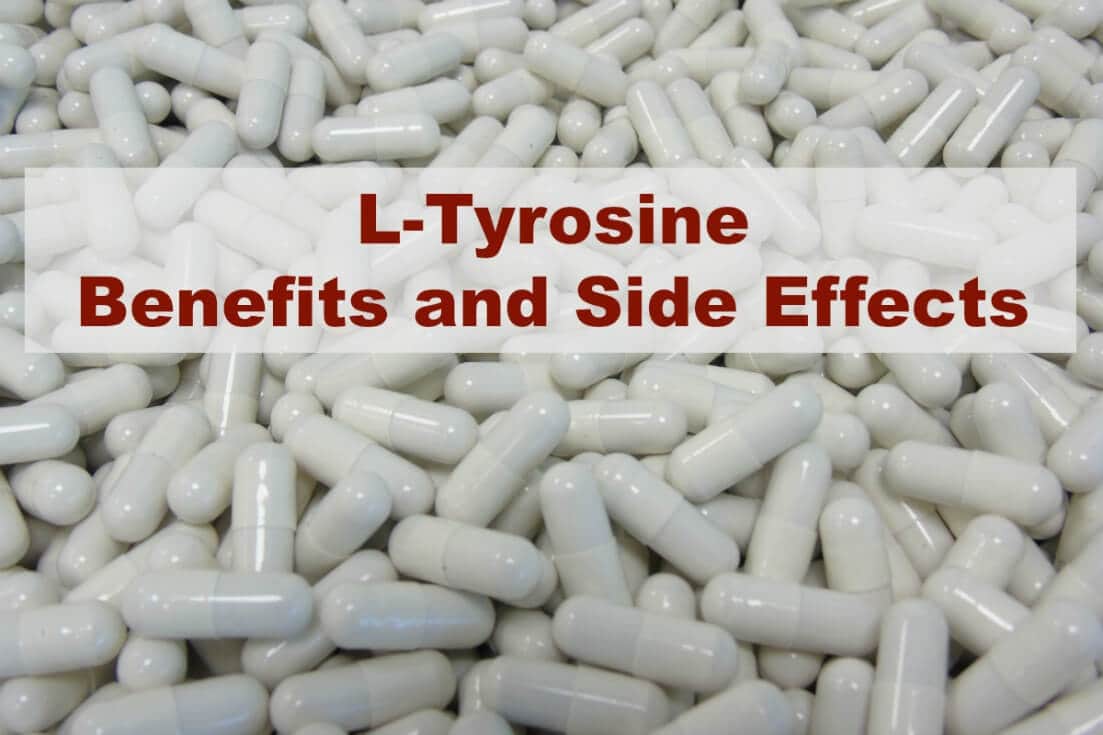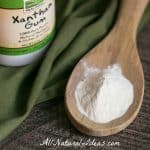There are several L-Tyrosine benefits that make it a very popular dietary supplement. What are these benefits and are there any side effects?

Nearly everybody knows that amino acids are the building blocks of protein. But not everybody knows that there’s one amino acid in particular that’s increasingly become popular to help reduce stress and stress-related symptoms.
The amino acid is “L-tyrosine.” But, are L-tyrosine benefits clinically-proven? Let’s find out….
Without needing a degree in neuroscience, the basics of this amino acid will be explained. And, we’ll review a few things that it does.
As mentioned, L-tyrosine (henceforward, ‘tyrosine’) is an amino acid. Amino acids are essential for every function your body performs.
Some amino acids are considered essential, others non-essential. There are nine essential amino acids and 11 non-essential amino acids.
Tyrosine is a non-essential amino acid. It’s considered non-essential because the human body produces it and it’s not necessary to consume from food.
Although tyrosine is non-essential, some people may not produce enough of the essential amino acid—phenylalanine— that makes tyrosine. Therefore, supplementation may be beneficial.
This naturally-occurring amino acid is also referred to as “n acetyl l tyrosine” which sounds a bit more complicated. It’s easier to just call it L-tyrosine or simply tyrosine.
Some dietary sources of tyrosine include:
- Avocados
- Bananas
- Dairy
- Pumpkin and sesame seeds
- Fish
- Chicken
- Turkey
Why is Tyrosine important?
Tyrosine plays a key role in the production of neurotransmitters. Neurotransmitters are chemical messengers that carry signals between neurons in the brain and other cells.
These chemical messengers in the body influence nerve function and mood. The neurotransmitters that tyrosine affects cause nerve or muscle fibers to have an excitatory effect.
Several important neurotransmitters are influenced by tyrosine. These include epinephrine (adrenaline), norepinephrine, and dopamine (the so-called ‘pleasure’ chemical). According to the this article, the role tyrosine plays in the human body includes:
- Producing melanin (the pigment responsible for the color of your hair and skin)
- Regulation of organs that produce hormones, including the adrenal, thyroid, and pituitary glands
- Providing structure of proteins throughout the body
What are the L-tyrosine benefits?
Taking tyrosine supplements has become increasingly popular. However, deficiencies in the amino acid are rare. Nonetheless, consumers interested in natural health are taking it because it may provide some positive outcomes.
Some possible tyrosine benefits may include:
- Enhanced ability to perform, compete, or exercise in stressful conditions, including high-altitude and cold-weather environments.
- Improve memory and mental alertness
- Prevent neurological disease
- Improve sleep quality (for both insomniacs and those with chronic fatigue)
- Mitigate depression and improve mood in general
- Treat the genetic disorder, PKU
But are the l-tyrosine benefits proven? Are the benefits of ‘n acetyl l tyrosine’ merely placebo, or, have they been validated by research?
Let’s take a look at what some of the research has to say about the benefits of tyrosine….
L-tyrosine research studies
Simon N. Young, Phd, and professor in the department of psychiatry at McGill University in Montreal, authored a review of tyrosine. His work was published in the Journal of Psychiatry and Neuroscience.
Young doesn’t seem to think that tyrosine has many proven benefits. He says “The main effects of L-tyrosine that have been reported are acute effects in preventing a decline in cognitive function in response to physical stress.”
The physical stressors include those of interest to the military, such as cold stress, the combination of cold stress and high-altitude stress. It also includes extended wakefulness and physical stress from the effects of spaceflight, such as muscle atrophy.
Dr. Young, in his research, reports that some of the papers he reviewed have titles that include the words “dietary tyrosine.” However, L-tyrosine is given without the amino acids that accompany it when it is ingested as part of protein.
In other words, if you want the l-tyrosine benefits, make sure it’s from a purified supplement. You shouldn’t rely on dietary sources alone.
“The use of L-tyrosine in purified form ensures that it is metabolized less via protein synthesis and more by catecholamine synthesis.” Catecholamines are hormones released by the adrenal glands. They flood the bloodstream when a person is under physical or emotional stress.
“Given that purified L-tyrosine is handled metabolically in a somewhat different way from ingesting it as part of the diet, calling it a dietary or natural remedy is misleading,” says Young. Effectively, purified tyrosine should be considered a pharmaceutical drug, he says.
L-tyrosine and stress related effects
Unfortunately, Young claims that although people may read claims that a major tyrosine benefit is the alleviation of the effects of stress, imagining that “L-tyrosine will help them to feel less stressed in response to the psychosocial stressors of everyday life[,] what has been shown is that L-tyrosine prevents some of the cognitive decline in response to physical stressors, an effect of interest to almost none outside the military.”
Dr. Young concludes, “The use of L-tyrosine cannot be recommended for patients. Patients who are already taking it need to be educated about what it has actually been shown to do and about the lack of evidence for long-term safety.”
What a bummer if you’re taking a tyrosine supplement! If you’ve talked to someone who claims they’ve experienced a benefit of tyrosine, or you yourself have taken it and noticed positive outcomes, the question then becomes:
What is the best l-tyrosine dosage?
In Dr. Young’s meta-analysis of tyrosine studies, doses ranged up to 20 grams, which is many times the normal daily dietary intake. In one study, tyrosine was given at a dosage of two grams per day for five days during a demanding military combat training course. The conclusion of the study: tyrosine improved various aspects of cognitive function relative to placebo.
Safety data on long-term tyrosine use in healthy people is lacking, according to tyrosine buzz-killer Dr. Young. In one of the longest studies he reviewed, 2.5 grams of tyrosine was administered three times per day “but had no beneficial effects when given to people with mild high blood pressure for two weeks.”
One may wonder, though, despite Dr. Young’s conclusions, if tyrosine benefits did include improved mental function in highly-stressful physical situations, why wouldn’t it apply to other stressful situations as well?
In general, tyrosine recommended dosages are 500-1500 mg approximately 30-60 minutes before exercising for stamina. Taking 150 mg/kg of bodyweight seems to help people who have lost a night’s sleep stay alert for about three hours longer than they otherwise would, according to WebMD.
L-tyrosine side effects
Tyrosine is a precursor for neurotransmitters that tend to excite the nervous system. That may be why one of the purported benefits of tyrosine is improved mental alertness and increased physical stamina. For this reason, tyrosine may cause an interaction with certain drugs that have stimulating actions.
As mentioned before, tyrosine regulates the endocrine system, including the thyroid gland. In theory, tyrosine may raise thyroid hormone production. Although most people with thyroid imbalances tend to have under-functioning thyroid glands, for those people with overactive thyroid disorder, such as Graves’ Disease, tyrosine may cause the thyroid to be further imbalanced.
And though most people taking antidepressants no longer take the class of drugs known as MAOIs, it should be noted that tyrosine can cause high blood pressure when it interacts with a MAOI.
L-tyrosine weight loss
Studies that definitively conclude tyrosine can help with weight loss are hard to come by. One study, involving female mice concluded, “tyrosine improves some of the neurobiological disturbances of diet restriction without causing an increase in body weight. Such a strategy might have important implications for the possible treatment of patients with anorexia nervosa.”
Despite the lack of double-blind clinical trials proving otherwise, lots of people swear by tyrosine for weight loss and other benefits. Because tyrosine increases the three neurotransmitters that regulate mood, some people who supplement with it claim it works better than SSRI antidepressants, which only control the amount of serotonin.
If tyrosine has been proven to increase energy in physically-demanding situations, it would seem logical, then, that tyrosine may increase metabolism.
L-tyrosine hair color
Although one of the L-tyrosine benefits is increased melanin production, you’ll need more than just this one supplement. This is because copper and vitamins B6 and C are also needed for L-tyrosine to be converted to melanin.
So, if you want to take this amino acid to help prevent early onset of gray hairs, you’ll need additional vitamin and mineral supplements.
Conclusion
There does seem to be some L-tyrosine benefits worth checking out. But, there is a lot more to the story than many may be led to believe. It’s best to check with a holistic medical practitioner to determine whether this supplement is worth taking for your specific needs.






